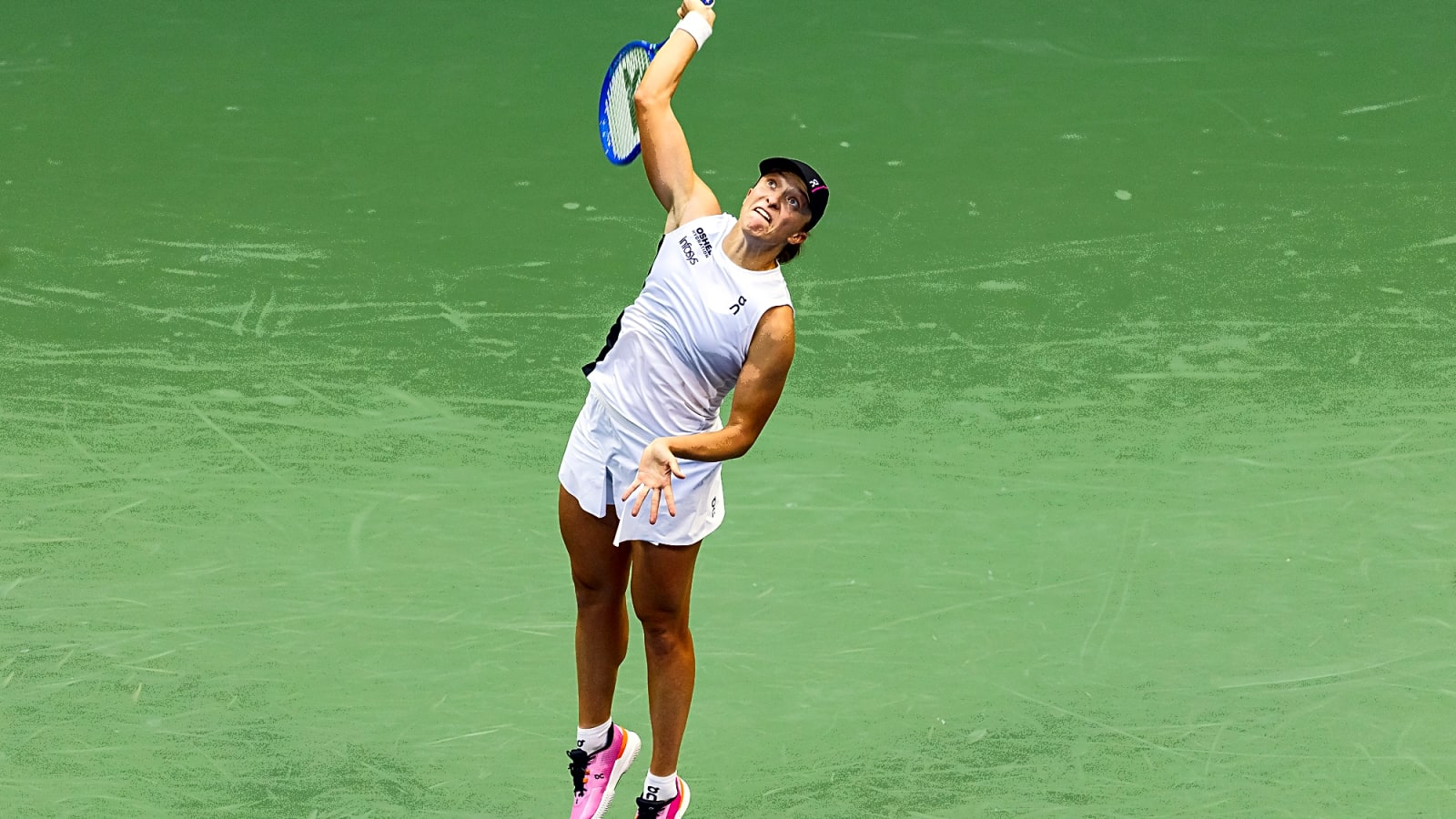
For Wim Fissette, Iga Swiatek’s coach since 2023, the 2025 season has been a lesson in both triumph and resilience. Speaking in a recent interview, the Belgian coach outlined how working with the world No. 1 has challenged him as much as it has rewarded him. “She’s such a versatile player,” Fissette explained.
“I’ve seen how she can succeed no matter where the tournament is, on any surface, with different balls. Everywhere she has chances. I know now how to approach her training, what she needs to reach the highest level, and how I can be the best possible coach for her.”
That versatility was on display during Swiatek’s most celebrated moment of the year: her first Wimbledon title. The victory was not just historic for Polish tennis but also symbolic for a player long criticized for struggling on grass. She defeated Amanda Anisimova in straight sets, breaking through the barrier that had kept her from the most prestigious slam in the sport.
Fissette admitted the moment was more than a trophy — it was validation of months of adapting training methods and strategy. “Winning Wimbledon was huge because it showed the world this team was building something, enriching her tennis. She even said after Cincinnati she was shocked to play so well on grass and the fastest hard courts. As a team, we found the way.”
The momentum carried into August, when Swiatek clinched the Cincinnati title. On some of the tour’s quickest courts, she demonstrated a willingness to innovate — using more slices, drop shots, and variety in her second serve to keep opponents guessing. Yet, just when the narrative seemed set for domination across surfaces, the US Open delivered a twist. Once again facing Anisimova, Swiatek fell in the quarterfinals. It was a painful reminder of how quickly fortunes can change at the highest level.
Fissette, however, sees these contrasts as part of the natural evolution of a champion. “As a tennis player, you can’t become predictable,” he said. “You must develop, otherwise rivals adapt to your game and know what to expect. Everyone at the top is searching for ways to grow. If you want to stay there, you have to add something new every year.” Anisimova’s revenge in New York only sharpened the point: standing still, even after a Wimbledon triumph, is not an option.
Tactical growth and strategic patience
Swiatek’s tactical shifts have been key to her development in 2025. Fissette highlighted her new positioning on returns, standing further back to extend rallies and maximize her heavy topspin. “She’s also more effective at handling those fast, on-the-run forehands,” he explained. “That builds confidence against opponents who hit very hard.”
While some observers see a more patient Swiatek, her coach insists this patience is by design. “Standing further back gives her more time. Being on the line means you also have to rush the next shot, which often makes you feel like you must overpower your opponent. The patience is coming from the strategy.”
The balance between embracing new strategies and trusting her instincts has not always been easy. Swiatek can be stubborn, Fissette admitted, but that trait is shared by most great champions. “It’s natural that if you achieve success in a certain way, you want to stick to it,” he said. “Sometimes you have to suffer a few defeats before opening up to new ideas. But once she believes in something and feels it works, she implements it quickly.”
The mental side of staying at the top
Beyond tactics, Fissette is acutely aware of the psychological demands placed on players at the highest level. He recalled moments, like after Rome 2024, when Swiatek admitted to putting too much pressure on herself and trying to replicate previous success instead of focusing on development. “I told her: be open to new ideas, because in sport there isn’t just one way. You can’t rely on copy-paste solutions.” That mindset proved vital in helping her rebound to win Wimbledon and Cincinnati.
But the mental challenges don’t only come from inside the locker room. Tennis, Fissette warns, is an environment where players are increasingly vulnerable to outside pressures. “The WTA is doing a lot to protect players,” he said. “The bigger problem is social media, where players face abuse. Both the WTA and ATP are trying to find solutions to protect athletes as much as possible. They’re doing a lot of good work in this area, but it won’t be solved immediately and we can’t eliminate every threat overnight.” His comments reflect a broader concern across the sport, where stars like Swiatek, Emma Raducanu, and Katie Boulter have all spoken about the emotional toll of online harassment.
More must-reads:
- New American tennis prodigy announces emphatic arrival
- Fantasy football takeaways from NFL Week 2: Is Ja'Marr Chase in trouble?
- The 'NFL's three-passing TD game leaders' quiz
Breaking News
Trending News
Customize Your Newsletter
 +
+
Get the latest news and rumors, customized to your favorite sports and teams. Emailed daily. Always free!








